Freedom of Speech

NARRATING OUR HISTORIES IN SOLIDARITY: Lessons from the Civil Rights Congress
New work by scholar Geoffrey Adelsberg, PhD on how Jews of past generations advanced groundbreaking multiracial coalition work, and what the tensions they faced — including racism within the Jewish community — say about conditions today.
more
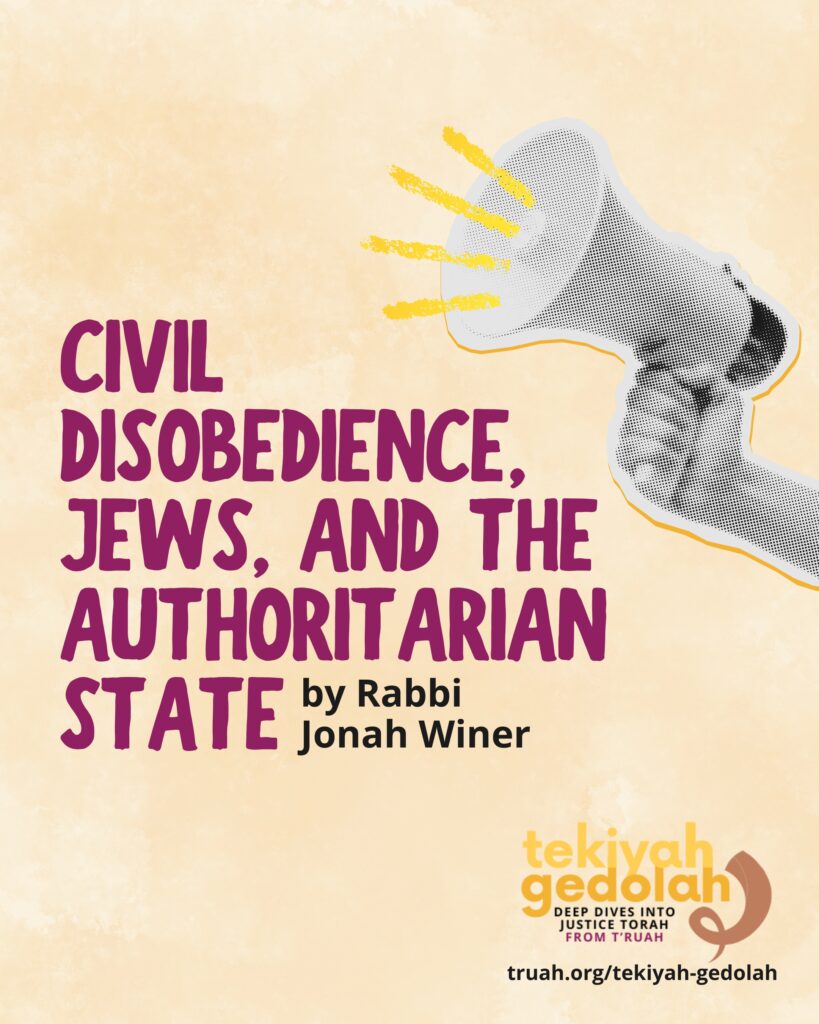
Civil Disobedience, Jews, and the Authoritarian State
The following is the first in T’ruah’s new thought leadership series, “Tekiyah Gedolah.” In a time of mounting authoritarianism in the United States, we must use the wisdom of our tradition to help us think through how to fight for democracy as diaspora Jews. How does our tradition guide us to respond to our present...
more
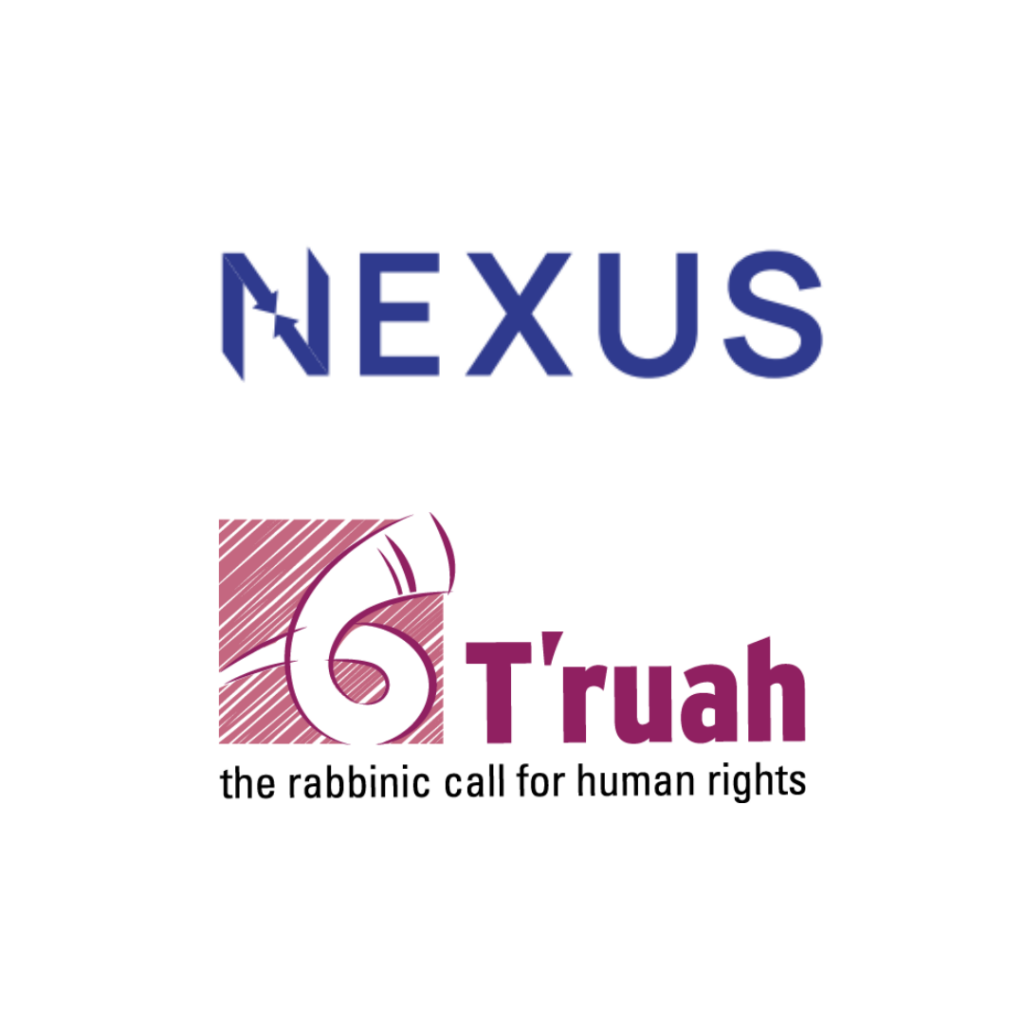
“Project Esther”: Exploiting Jewish Fear to Advance Dangerous Policy
Created in collaboration with The Nexus Project. Learn what Project Esther is, why it’s dangerous, how it’s showing up in policy right now, and what Jewish leaders can do about it.
more
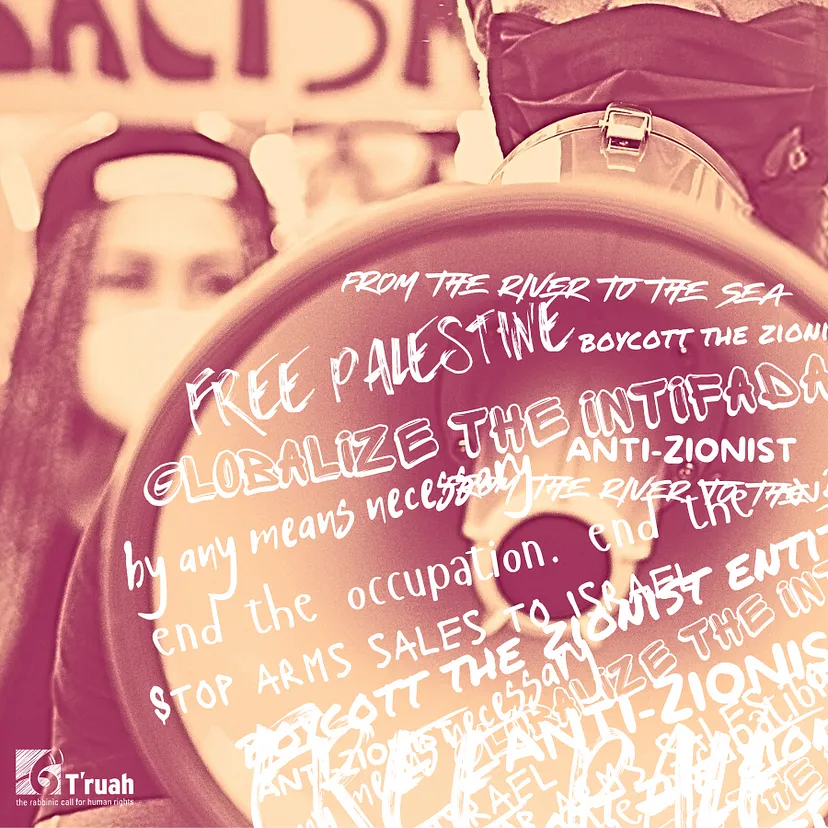
Criticism of Israel and Antisemitism: How to Tell Where One Ends and the Other Begins
In this time of inflamed passions, it’s crucial both to ensure that criticism of Israel does not cross the line into antisemitism, and to protect the free speech of those protesting Israel’s actions.
more
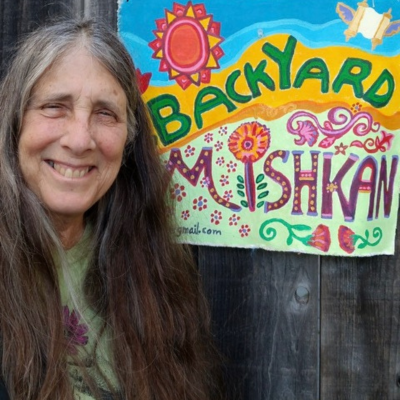
Tisha B’Av: Making Reparations after Churban
It is not enough to mourn. Mourning must be accompanied by actions that end the harm being done.
more
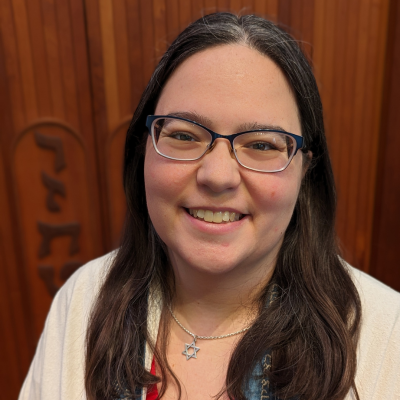
Beha’alotecha: Keeping the Fire Lit: Book Bans and Human Rights
The lights of the menorah in the Mishkan, and in the Temple, led to the ner tamid (eternal light) in our sanctuaries, and to our understanding that each one of us is a light too.
more
Taking to the Streets: A Checklist for Action
A working document based upon guides from PG Watkins of The BlackOUT Collective and Frontline Election Defenders Tefillat HaDerech (The Travelers’ Prayer): May it be Your will, our God and God of our ancestors, that You lead us in peace and direct our steps in peace, and guide us in peace, and support us in...
more
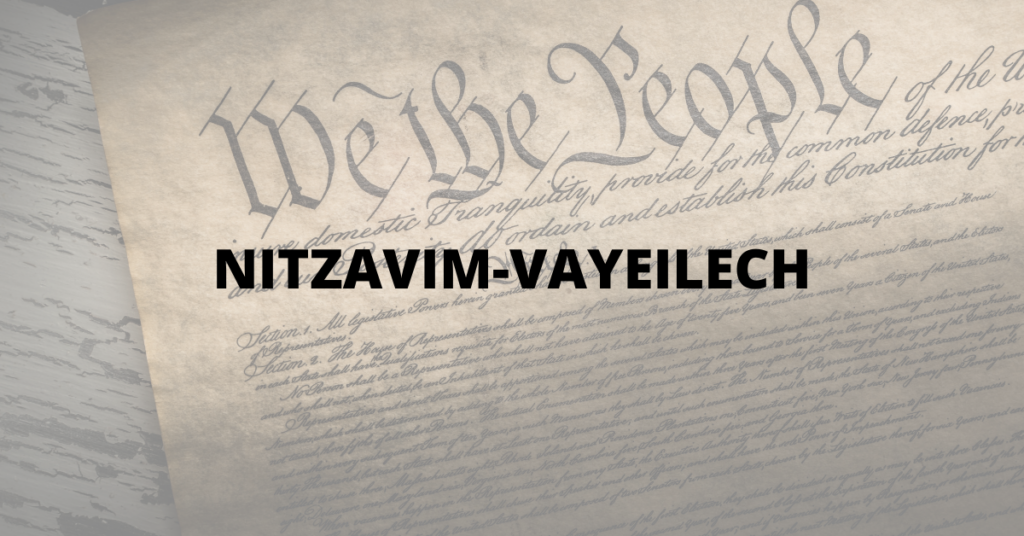
Two Decades Later
Two decades later, it is easier to see how we were tempted by the idols of that time, but it is still hard to recognize the idols of today. We remember the sheer panic of 19 years ago, and how we longed for someone — anyone — to make us feel safe again. Those who told us that we need only sacrifice a bit of our liberty for safety often gave us neither. Looking back, we remember just how hollow those promises were.
more
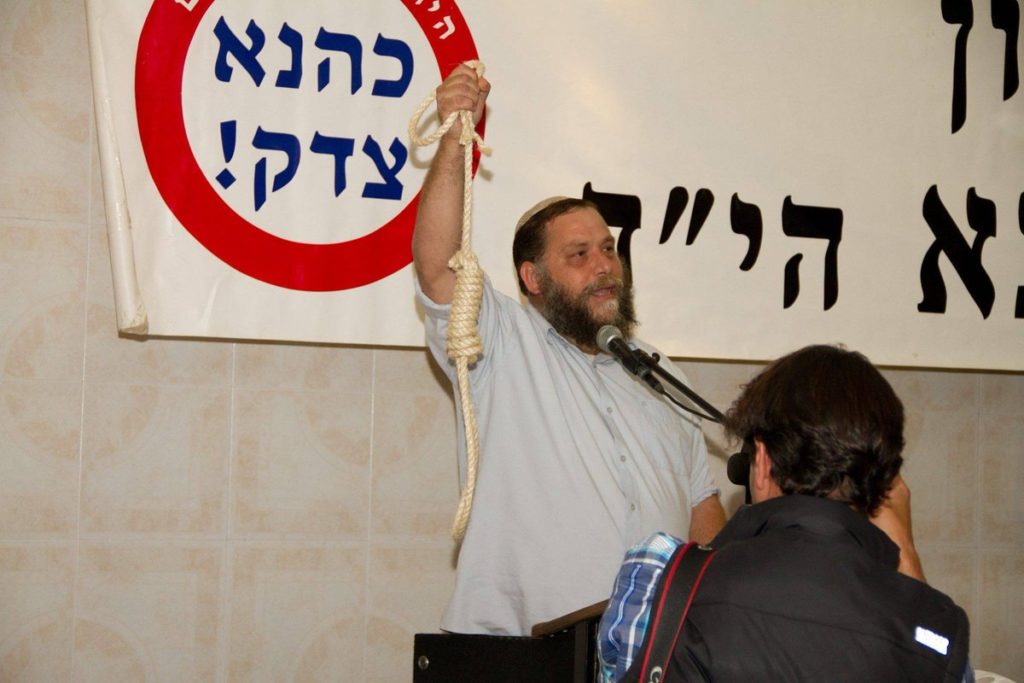
Torah Against Incitement
In December 2015, T’ruah organized Jewish communities and individuals to study this text over Shabbat, as a response to incitement against activists in Israel. It is a talk given by Rabbi Aharon Lichtenstein, Rosh Yeshiva of Yeshivat Har Etzion and a major figure in the Orthodox movement, in the wake of Israeli Prime Minister Yitzhak...
more
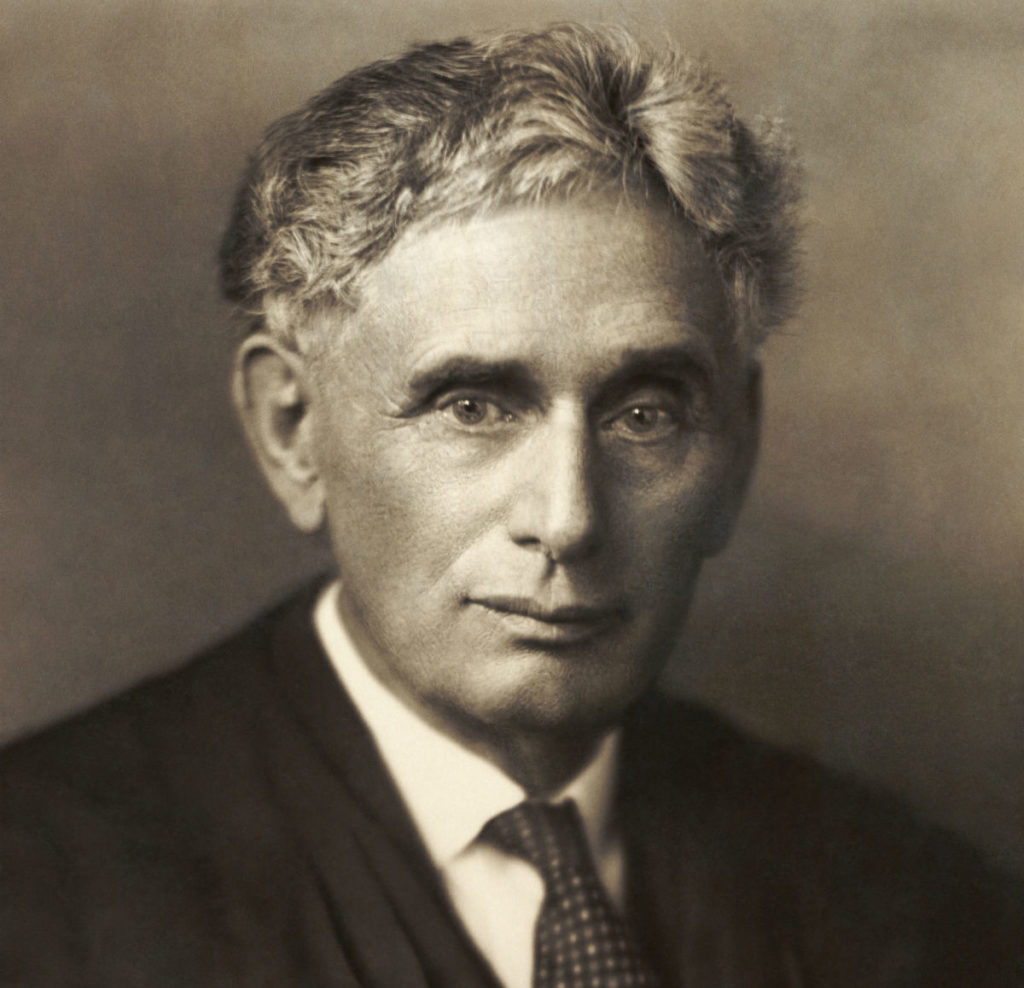
Freedom of Speech in Jewish Tradition
Freedom of speech is an ancient Jewish value, as well as a keystone of democracy. Even if we find certain speech distasteful or disruptive, we all lose when we attempt to quash such speech—as long as it does not rise to the level of inciting violence. Boycotts have long been defined as a form of...
more
